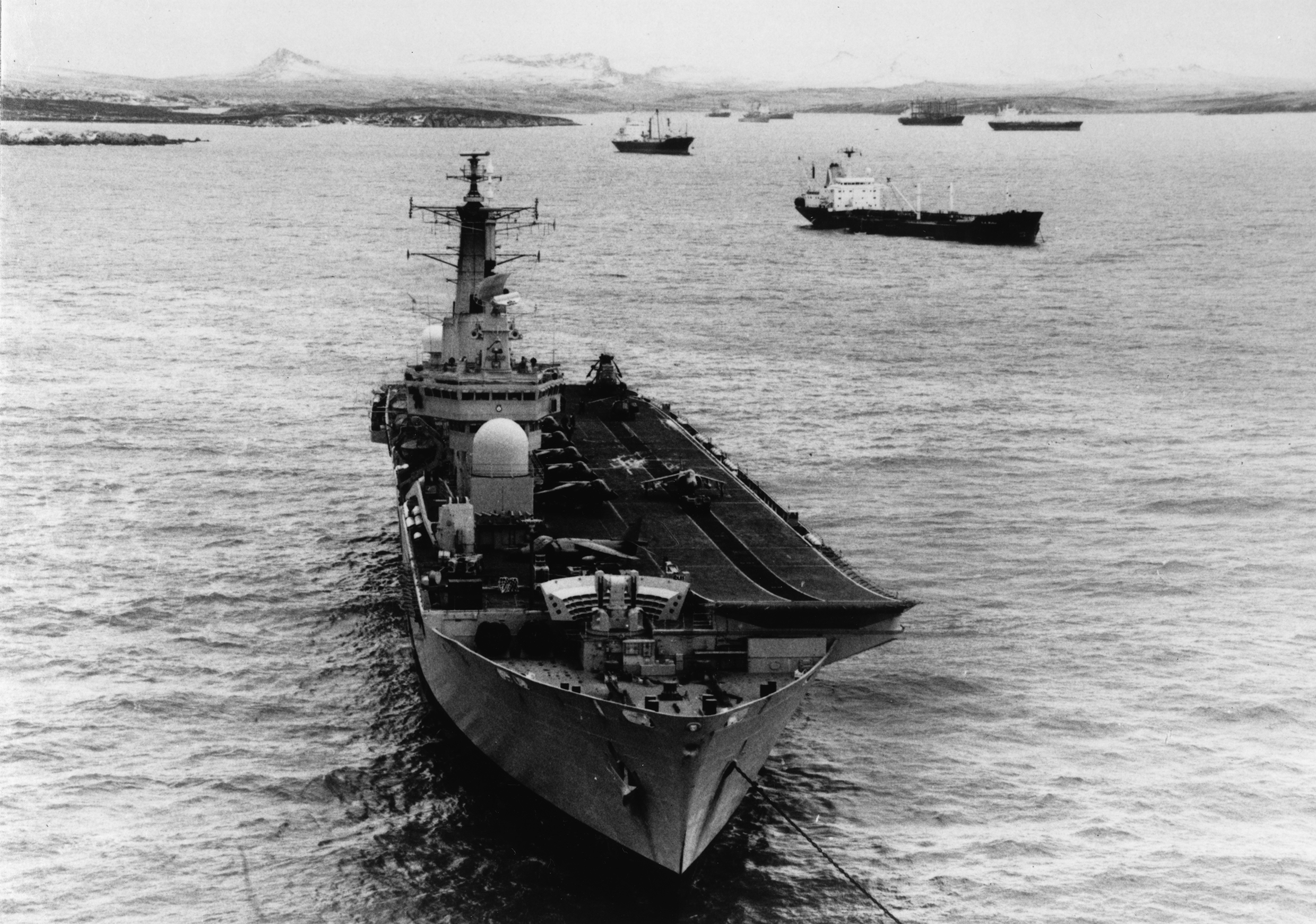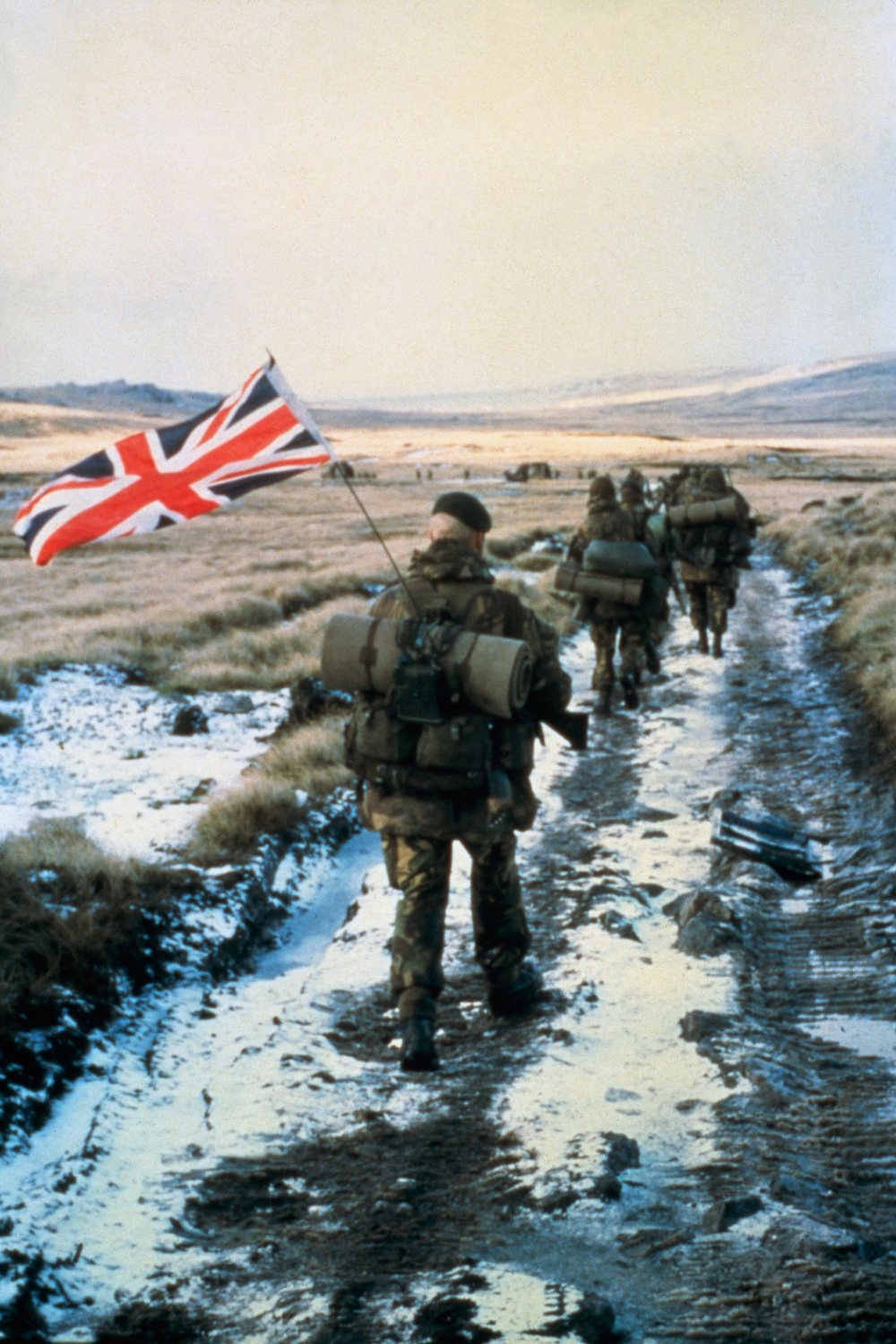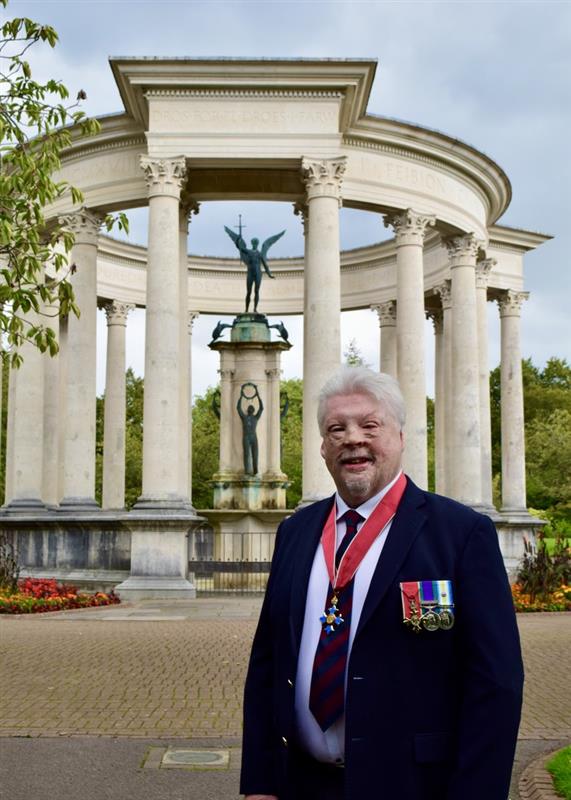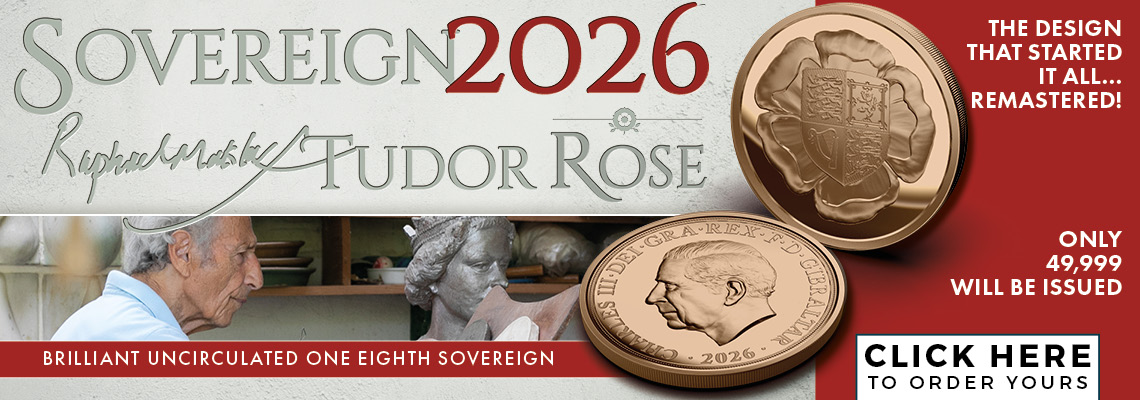
The Falklands War at 43:
How a Remote Island Conflict Shaped Modern History
As we mark the 43rd anniversary of the end of the Falklands War on 14th June, let’s take a moment to reflect on this brief but intense conflict that captured the world’s attention back in 1982 – 43 years ago. The ten-week war between Argentina and the United Kingdom over a remote South Atlantic archipelago might seem distant now, but it had far-reaching consequences that continue to resonate today.
As a country, we have an incredibly rich military history, and it is from these battlefields that we have inspirational stories of great courage from figures such as Douglas Bader, Alan Turing and many others. This year’s 43rd anniversary of the Falklands Conflict is a poignant reminder of the servicemen and women who travelled thousands of miles from their home shores to fight for the freedom of the Falkland Islanders.

The Falklands Conflict witnessed countless acts of great courage, determination, and resolve, alongside heartbreaking scenes of tragedy and loss. Over four decades on, the ensuing memories of the war still resonate deeply with people all across the world – and for those who witnessed or participated in the fighting themselves, their lives would truly never be the same again.
Talks between the two countries started prior to the war to try and ensure the safety of the islanders. In 1980, a meeting was held between the British and Argentine governments in which Britain declared that “the Falklands represent no vital strategic or economic interest”.
They proposed the idea of a ‘leaseback’ in which the islands would be given to Argentina and then leased back by Britain for a 99-year period. But this proposal was rejected immediately by the islanders who, understandably, wanted to remain under the peaceful order of the British government permanently.
The right to live in peace
On 2 April 1982, Argentina launched a full-scale invasion of the Sovereign British Overseas Territory of the Falkland Islands. In the tense days and weeks to come, Britain was fully mobilised for a military defence for the first time since the Second World War. After travelling the vast and tumultuous South Atlantic Ocean, on 21 May, British forces landed on the coast of San Carlos. Fortune was on their side as they moved through a thick fog, which rendered them difficult to detect by Argentinian forces.
Remembering our eternal heroes

On the morning of 14th June, after 74 days of conflict, white flags appeared in Port Stanley and the Argentine Commander, General Mario Menéndez, surrendered his troops. This effectively ended the Falklands Conflict – a war that claimed the lives of 655 Argentinians, 255 Britons and three islanders – lives we will never forget.
The sacrifice of our brave soldiers, throughout all conflicts, has helped build the country we know and love today. Without the determination and courage of the people who served and also made the ultimate sacrifice, history as we know it would have turned out very differently. Continuing to tell their stories is even more important today, as a way to remember the fallen and their families for everything they have given to protect our people and the peace of our great nation.
The stories of our service personnel provide a moment in history, encapsulating the struggle but also the valour and pride of life within the armed forces. With many military anniversaries this year, commemorative coins marking anniversaries are continuing to tell the stories of service personnel from previous conflicts, acting as tokens from the past and inspiration to everyone who hears their stories of triumph and sorrow. They also continue to inspire new generations to ensure that they are never forgotten. We will remember them.
Words from our military ambassador, Simon Weston CBE
One of the nation's heroes, who we are proud to say is our military ambassador, Simon Weston CBE, has also given us his take on the 43rd anniversary of the end of the Falklands conflict;
"I can’t believe it’s gone by so quickly, and the loss is still hurting and affecting people 43 years on. No matter how you and the families move on, the loss is still there.
If there were any consolations, there was success, and the people of the islands had their freedom. For me, it’s about finding the positives in conflict. It will never outweigh the horrors, and we did lose people. However, if there was no success, it would have all been for nothing. I’m proud that my friends will forever live on, through their names marked on memorials – they live on, they will never die. They will forever be remembered."




